What Minari teaches us about family and migration by [@Amarofpatel]
Exploring broad themes from a personal perspective and with attention to detail, Lee Isaac Chung’s story is one we can all identify with.
Contribution by Amar Patel
Will there be a greater gift to cinema than Minari in 2021? A tender tale of family, of movement, of hope, and the obsessive pursuit of a dream. That’s the American Dream by the way (no matter what the Hollywood Foreign Press Association (HFPA) tells you). The kind that promises much but doesn’t always deliver.
At a time when many of us feel detached from the ones, we love, particularly those who have cared for us, the ones who seemed to have aged quicker out of sight, this film reminds us that our shared history – the ups and downs – shapes who we are and are yet to become.
The brilliance of Colorado-born writer/director Lee Isaac Chung, together with his close-knit cast and crew, is how they have told what appears to be a very specific story (inspired by the director’s early life) in such a universal and fluid way. And they did it in 25 days on a shoestring budget.
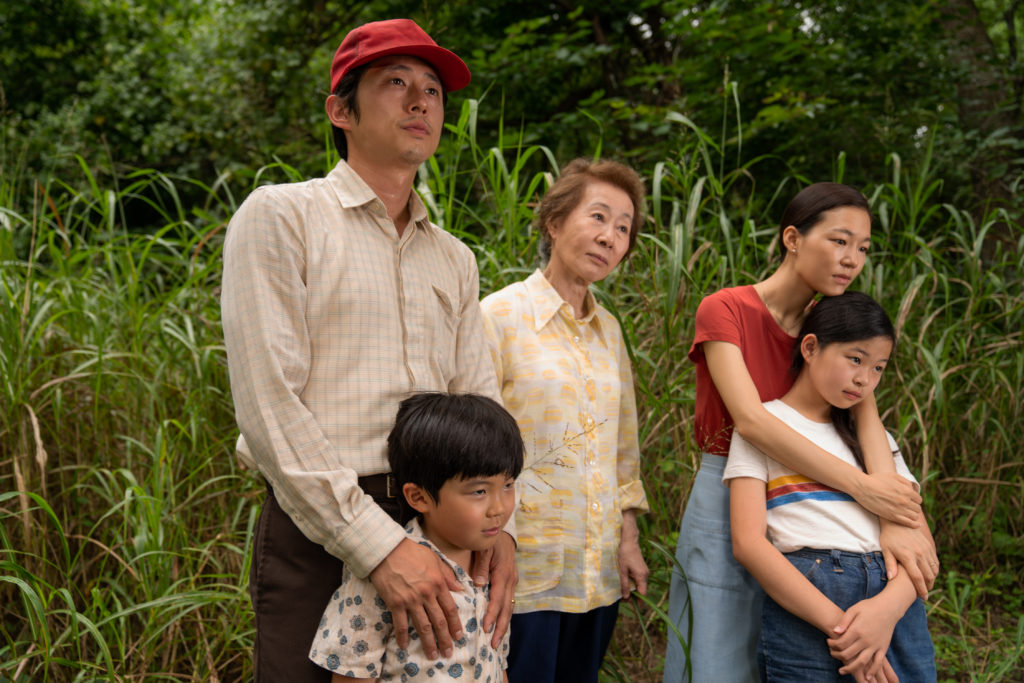
Korean American father Jacob Yi (Steven Yeun) uproots his family from California to 80’s rural Arkansas to start a small farm, which he hopes will supply Korean fruit and vegetables to the many immigrants settling in the US.
Is it an act of hubris or a bold attempt to build a future away from the hatchery? The answer lies somewhere between, Yeun’s sincerity and conviction making us root for Jacob and sympathise with him even when the well runs dry and pride takes hold.
The camera surveys the whole family, not only Jacob. Through lingering shots of his wife Monica (Yeri Han) – a stern glance, a withering look – we feel the mounting anguish and sense the widening chasm that the move creates. “This is not what you promised,” she tells Jacob, dismayed at the sight of their new mobile home.
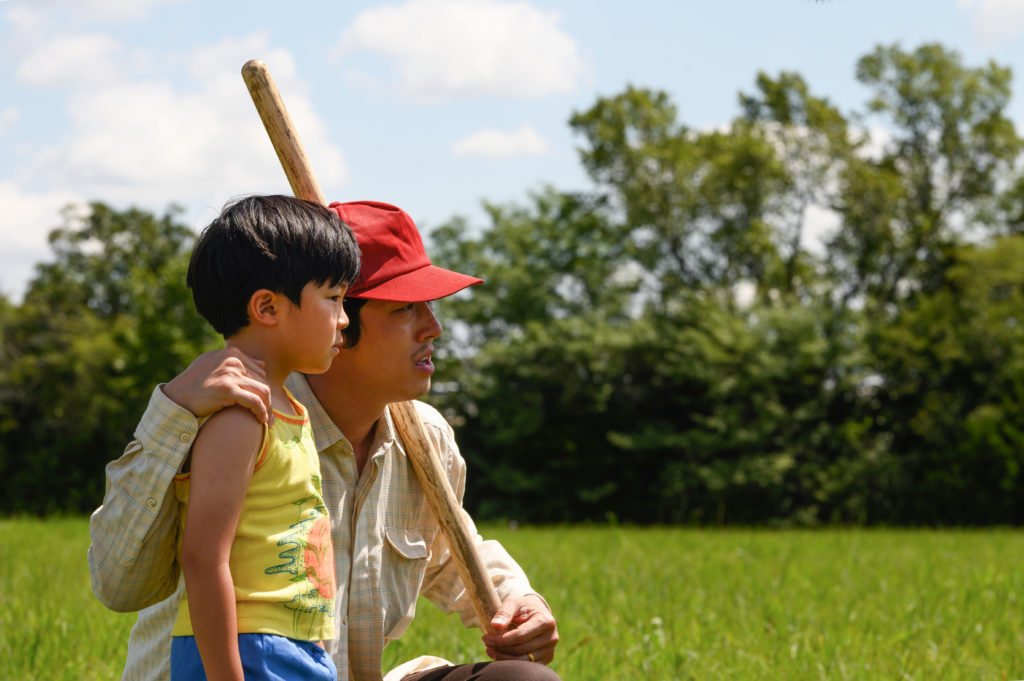
Monica does not share her enterprising husband’s optimism and fears they will struggle. Forlorn, she has forgotten what it feels like to be in love and mourns the part of herself that felt at home in California. Two people on diverging paths: something has to give.
The sweet relationship between their son David (adorable Alan S Kim) and his grandmother Soonja (Oscar-nominated Youn Yuh-jung) who comes to stay and provide emotional support to Monica, is an undisputed highlight. The mischievous boy with a weak heart slowly warms to his “halmeoni” despite her very ‘ungrandmotherly’ traits – swearing, not baking cookies, wearing men’s pants.
As Chung explained to Parasite director Bong Joon Ho in this Q&A, the family is the protagonist, trying to make it together. This offers several access points into the story. Kim might be playing a version of young Chung but Chung the father could also see himself as Jacob. His daughter is roughly the same age as David in the film. This is for her too.
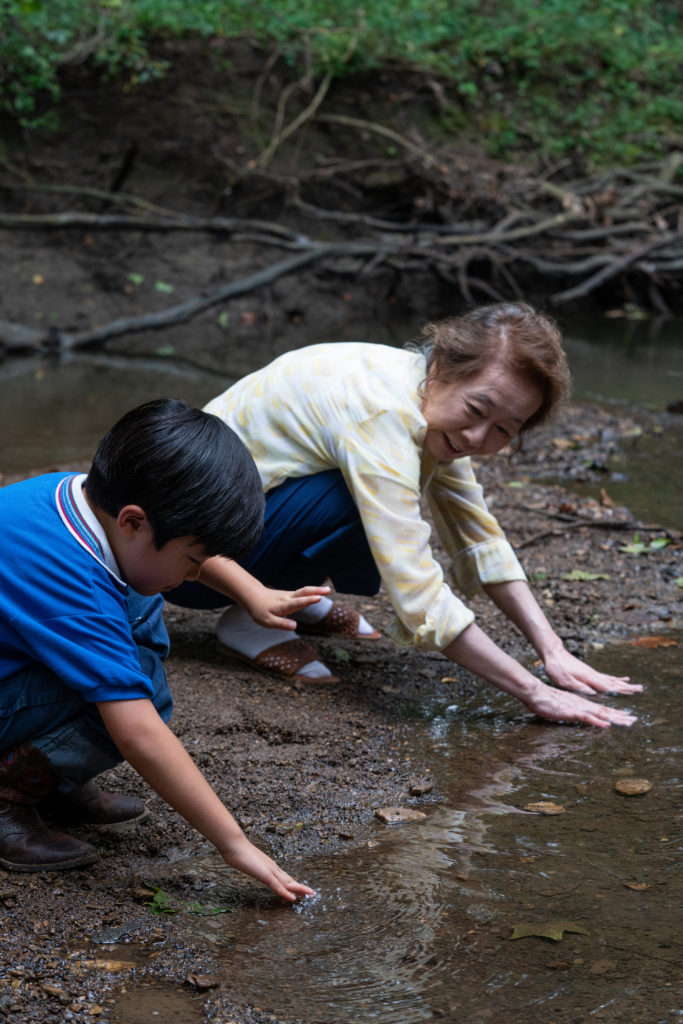
Yeun could draw on his own memories as well. His family emigrated from Seoul to a working class-neighbourhood in Michigan, father Je going from being an architect to slipping chopsticks into paper sleeves. “He said he was so angry because he realised that he threw away all the safety of everything and had to start back up from zero,” Yeun told GQ.
The dialogue is inspired by family conversations but Chung wanted each character to be reinvented on screen and that included how they spoke. For instance, Soonja bears little resemblance to his actual grandmother but she represents her indelible influence at that time in his life.
In the film, Soonja brings warmth and optimism – David is actually a “strong boy” who can run and she thinks this house on wheels is “fun” – along with a taste of home, her trusty pack of cards and a fruity mouth.
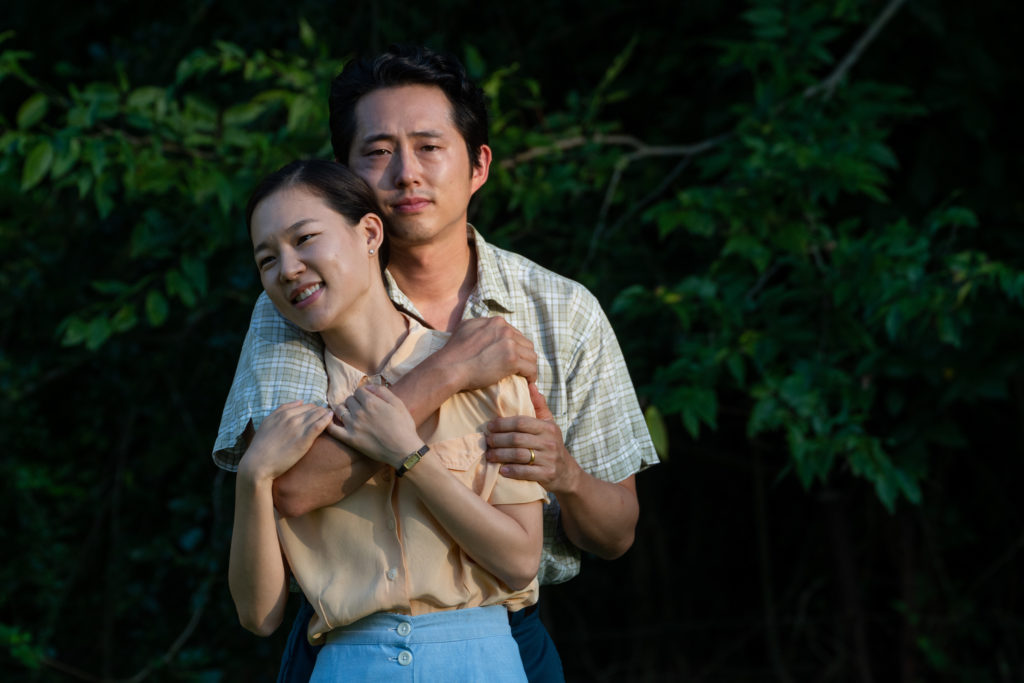
She also plants minari in the creek just as Chung’s grandmother did (incidentally, in the same place the film’s location scout played as a child). The peppery Korean leaf flourishes on foreign land, the only thing that really does. Particularly the second harvest. Read into that what you will, but as Slate puts it, this humble vegetable “is both a connection to their homeland and a marker of a new beginning”.
In films depicting an immigrant experience, as in life, authenticity can be a straightjacket as Yeun told filmmaker JJ Abrams. “We are trying to authenticate ourselves in this polarised vacuum where either you’re Korean or you’re American,” he said.
Minari’s characters are individuals with all their little quirks and faults. These aren’t archetypes designed to explain Korean culture to us, a common misconception or pitfall that Chung mentioned in the same conversation.
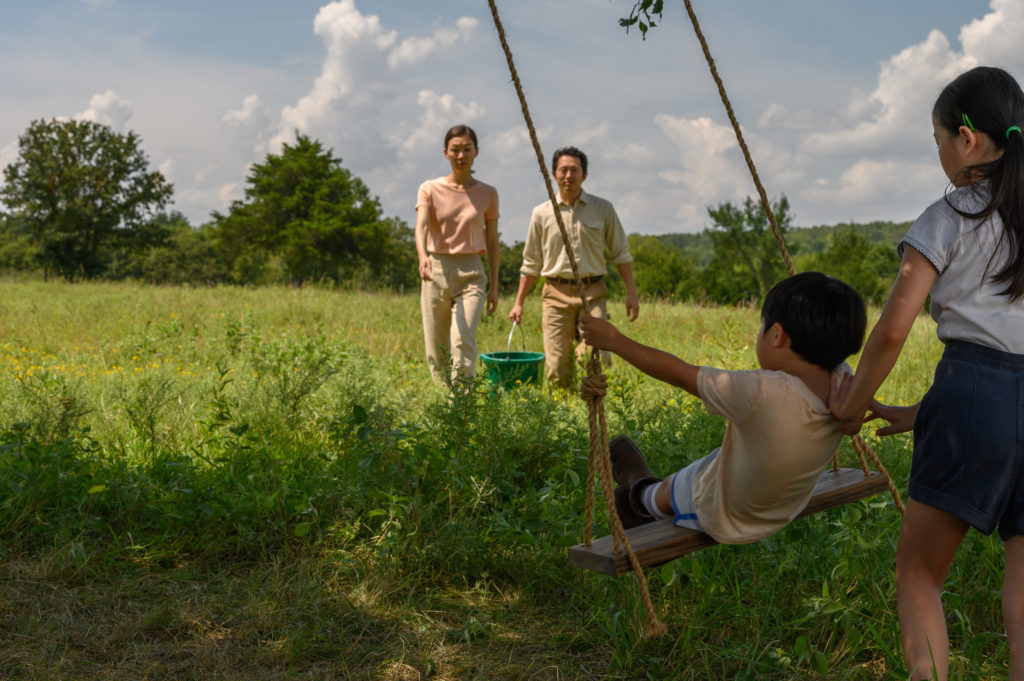
And they aren’t ‘the other’ to be studied or puzzled by. In fact, it’s locals and neighbours who bewilder, like the stick-wielding water diviner. And Will Patton’s big cross-bearing farmhand Paul who tries to cast out demons among the crops and around the motor home.
The Yis are vessels into which we can pour our own memories and make associations. In turn, they help us to see our family in a new light, and not how we are often conditioned to view them in the place we have settled. Whether that’s the language barrier being a cause of embarrassment, tradition stifling growth, or a stubborn attitude keeping distance.
Similarly, by not having a voiceover of an older David – often a device in retrospective projects like this – viewers can narrate the story in the context of their own lives using memory and imagination.
A movie like Minari can foster understanding between generations and help the younger ones to find their place in a complex tangle of emotions. For that reason and many more, it will endure as one of the great films of recent years.
Contribution by Amar Patel
Check out the GUAP Arts & Culture section, to discover new art, film, and creative individuals.




![ZINO VINCI’S ‘FILTHY & DISGUSTING’EP BRINGS YOU TO THE CORE OF THE ARTIST [@ZinoVinci]](https://guap.co/wp-content/uploads/2023/10/Zino-4.jpg)





![Remel London’s [@Remel_London] “Mainstream” is a must attend for upcoming presenters!](https://guap.co/wp-content/uploads/2017/02/REMEL-LONDON-FLYER-FINAL-YELLOW-COMPLETE-1.png)